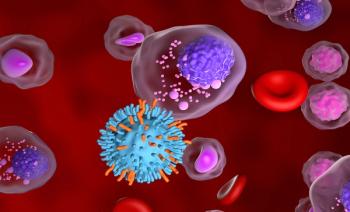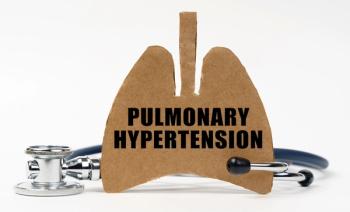
The FDA has approved deuruxolitinib, an oral medication developed by Sun Pharma, as the first-line treatment for adults with moderate to severe alopecia areata.

The FDA has approved deuruxolitinib, an oral medication developed by Sun Pharma, as the first-line treatment for adults with moderate to severe alopecia areata.

Coverage of our peer-reviewed research and news reporting in the health care and mainstream press.

Artificial intelligence (AI) models have potential to help clinicians assess risk in patients with hepatocellular carcinoma (HCC) to inform disease management, a new study found.

The gene therapy giroctocogene fitelparvovec demonstrated superiority compared with the standard of care, routine prophylaxis, in hemophilia A treatment.

Legal and policy experts on a KFF webinar explained how the Supreme Court’s recent decision to overturn the Chevron precedent will impact legislators, agencies, and courts as they interpret and enforce policies in the health care realm.

These 48-week data from ARTISTRY-1 build on 24-week results previously presented and show enduring efficacy of bictegravir plus lenacapavir.

In part 2 of our interview, Diane Mahoney, PhD, DNP, FNP-BC, WHNP-BC, APRN, advocates for a multidisciplinary, community-centered approach to reduce ovarian cancer care disparities and stresses the need for ongoing exploration of social, biological, and environmental factors affecting health outcomes.

Interventions promoting adherence to the Mediterranean diet were associated with cardiometabolic biomarkers in children and adolescents, according to one study.

Patients with unresectable stage III non–small cell lung cancer (NSCLC) who received atezolizumab before and after chemoradiation therapy (CRT) had both safe and effective results.

A federal appeals court ruled yesterday that a group of Republican-led states do not have legal standing to impose restrictions on the abortion pill mifepristone; the US infant mortality rate increased by 3% in 2022; a twice-yearly injection could prevent 100% of HIV infections.

Despite a significant increase in women with unilateral breast cancer who received a bilateral mastectomy, this study found no survival benefit compared with other treatment options. Although removing the unaffected breast reduces the risk of developing cancer in the other breast, results did not show decreased risk of death from breast cancer.

This new analysis examined the investigational chimeric antigen receptor (CAR) T-cell therapy GC012F among patients with newly diagnosed and high-risk multiple myeloma (MM).

The phase 3, international, open-label, single-group XTEND-Kids study concluded that children with severe hemophilia A younger than 12 years benefited from treatment with efanesoctocog alfa prophylaxis.

On this episode of Managed Care Cast, we're talking with Jason Spangler, MD, MPH, CEO of the Center for Innovation and Value Research on equity challenges within health technology assessment.

A late-breaking abstract focused on a head-to-head comparison between dolutegravir/lamivudine (DTG/3TC) and bictegravir/emtricitabine/tenofovir (BIC/FTC/TAF) in the treatment of HIV.

For Minority Mental Health Awareness Month, the Employee Benefits Security Agency (EBSA) in the US Department of Labor highlights the critical need to address mental health disparities among racial and ethnic minorities.

Patients diagnoesd with metabolic dysfunction–associated steatotic liver disease may have a higher risk of colorectal cancer (CRC) or colorectal adenoma.

While both drugs slowed down lung function decline in idiopathic pulmonary fibrosis (IPF), they were also linked to more deaths and increased incidence of acute exacerbation of IPF in real-world settings.

Biologic therapies may be less effective in patients with certain clinical characteristics, a meta-analysis found.

Lawmakers cross-examined pharmacy benefit manager (PBM) representatives during a Congressional hearing; the proportion of hospital inpatients covered by private Medicare Advantage (MA) plans is rapidly increasing; public health officials are concerned after poliovirus was found in sewage samples from Gaza.

Patients with fibrosing interstitial lung disease (ILD) who began supplemental oxygen therapy had triple the per patient per month ILD-related health care costs compared with those who did not.

A new report shows wide variability in terms of which patients with chronic thromboembolic pulmonary hypertension (CTEPH) are deemed eligible for pulmonary endarterectomy and balloon pulmonary angioplasty.

Two posters presented at the Society for Pediatric Dermatology Annual Meeting explored common health conditions linked to childhood alopecia areata and the effectiveness of dupilumab treatment in children with both alopecia areata and atopic dermatitis.

Ryan Jacobs, MD, lymphoma division director at Atrium Health Levine Cancer Institute, explains the design and objectives of the phase 2 CAPTIVATE study comparing ibrutinib and venetoclax in patients with chronic lymphocytic leukemia (CLL).

Efforts to regulate social media for youth face resistance; MK-1654 meets key goals in mid-to-late stage trial; active drug shortages remain above 300 for sixth consecutive quarter.

Diane Mahoney, PhD, DNP, FNP-BC, WHNP-BC, APRN, discusses her study on how social determinants of health impact the health perceptions of Black and Hispanic ovarian cancer survivors, highlighting significant health disparities.

The social determinants of health (SDOH) that need to be tackled most urgently when it comes to which patients with large B-cell lymphoma (LBCL) do and do not receive chimeric antigen receptor T-cell therapy (CAR T) are age, sex, income, and race/ethnicity.

Patients with intellectual disabilities experience inconsistent chronic obstructive pulmonary disease (COPD) consultations and higher rates of antibiotic prescriptions for asthma, highlighting the need for improved and tailored primary care management.

Marissa Joseph, MD, MSc, FRCPC, medical director at Women’s College Hospital in Toronto, Ontario, Canada, highlighted cases from her practice to illustrate the recommended approach to scarring inflammatory scalp dermatosis in adolescents at the Society for Pediatric Dermatology Annual Meeting.

Despite rising trends in respiratory syncytial virus (RSV) testing, more outpatient testing is needed for accurate RSV surveillance.

259 Prospect Plains Rd, Bldg H
Cranbury, NJ 08512
© 2025 MJH Life Sciences®
All rights reserved.
